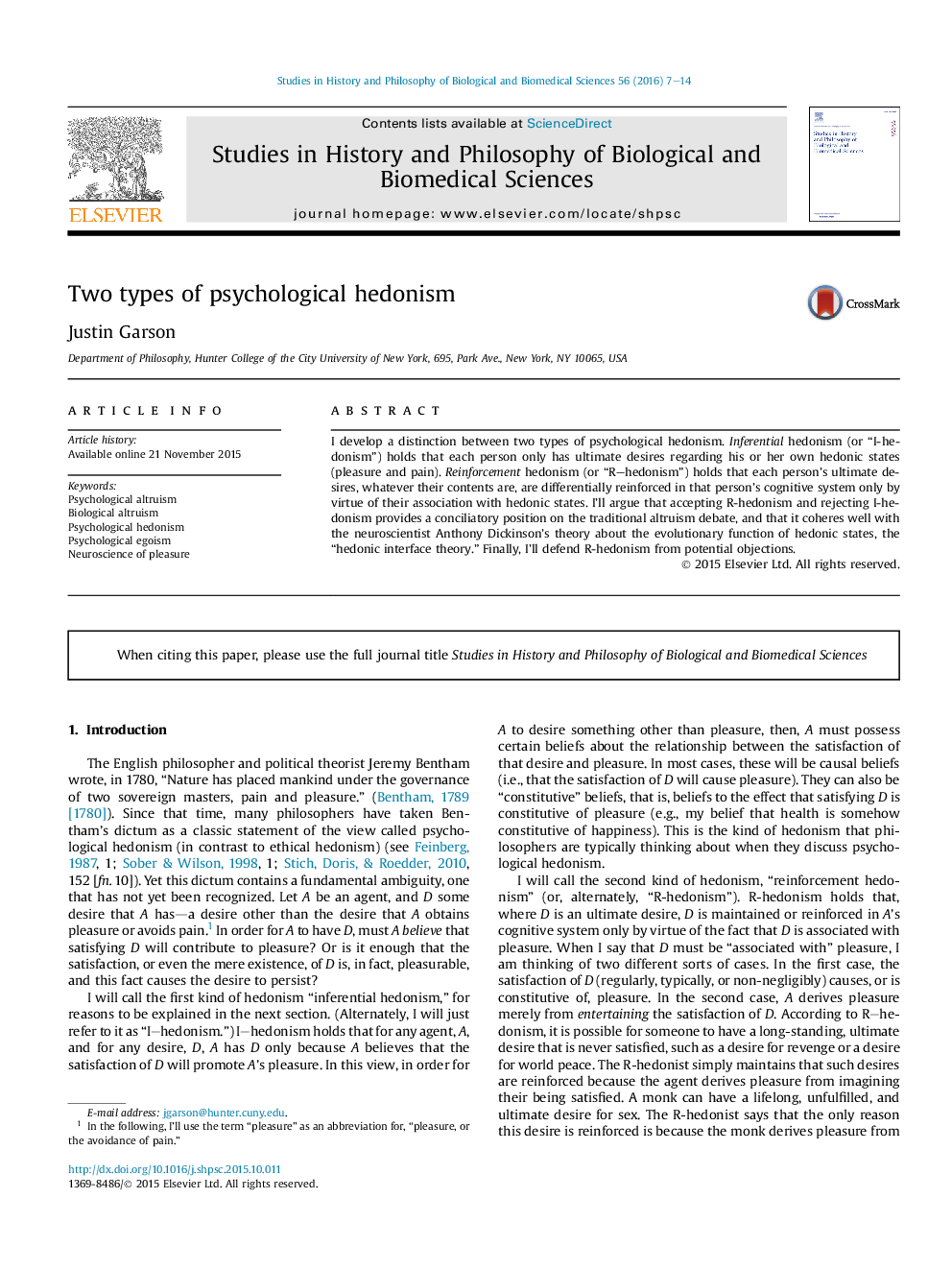| Article ID | Journal | Published Year | Pages | File Type |
|---|---|---|---|---|
| 1161596 | Studies in History and Philosophy of Science Part C: Studies in History and Philosophy of Biological and Biomedical Sciences | 2016 | 8 Pages |
•I present two types of psychological hedonism, “I-hedonism” and “R-hedonism.”•I review two traditional arguments against I-hedonism.•I present two arguments for R-hedonism.•I show how recent work in the neuroscience of pleasure supports R-hedonism.•I defend R-hedonism from several objections.
I develop a distinction between two types of psychological hedonism. Inferential hedonism (or “I-hedonism”) holds that each person only has ultimate desires regarding his or her own hedonic states (pleasure and pain). Reinforcement hedonism (or “R–hedonism”) holds that each person's ultimate desires, whatever their contents are, are differentially reinforced in that person's cognitive system only by virtue of their association with hedonic states. I'll argue that accepting R-hedonism and rejecting I-hedonism provides a conciliatory position on the traditional altruism debate, and that it coheres well with the neuroscientist Anthony Dickinson's theory about the evolutionary function of hedonic states, the “hedonic interface theory.” Finally, I'll defend R-hedonism from potential objections.
